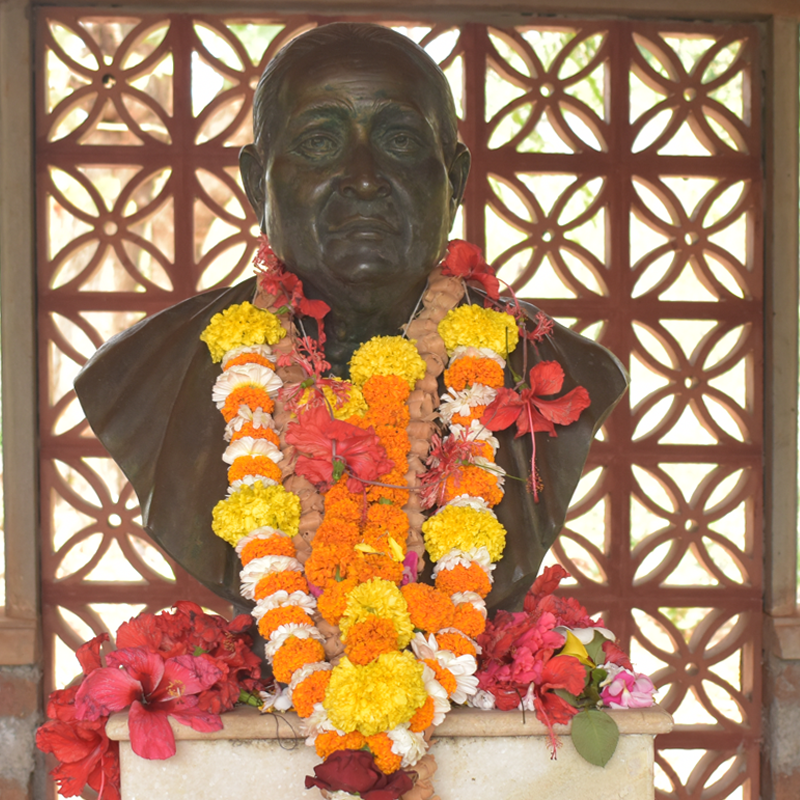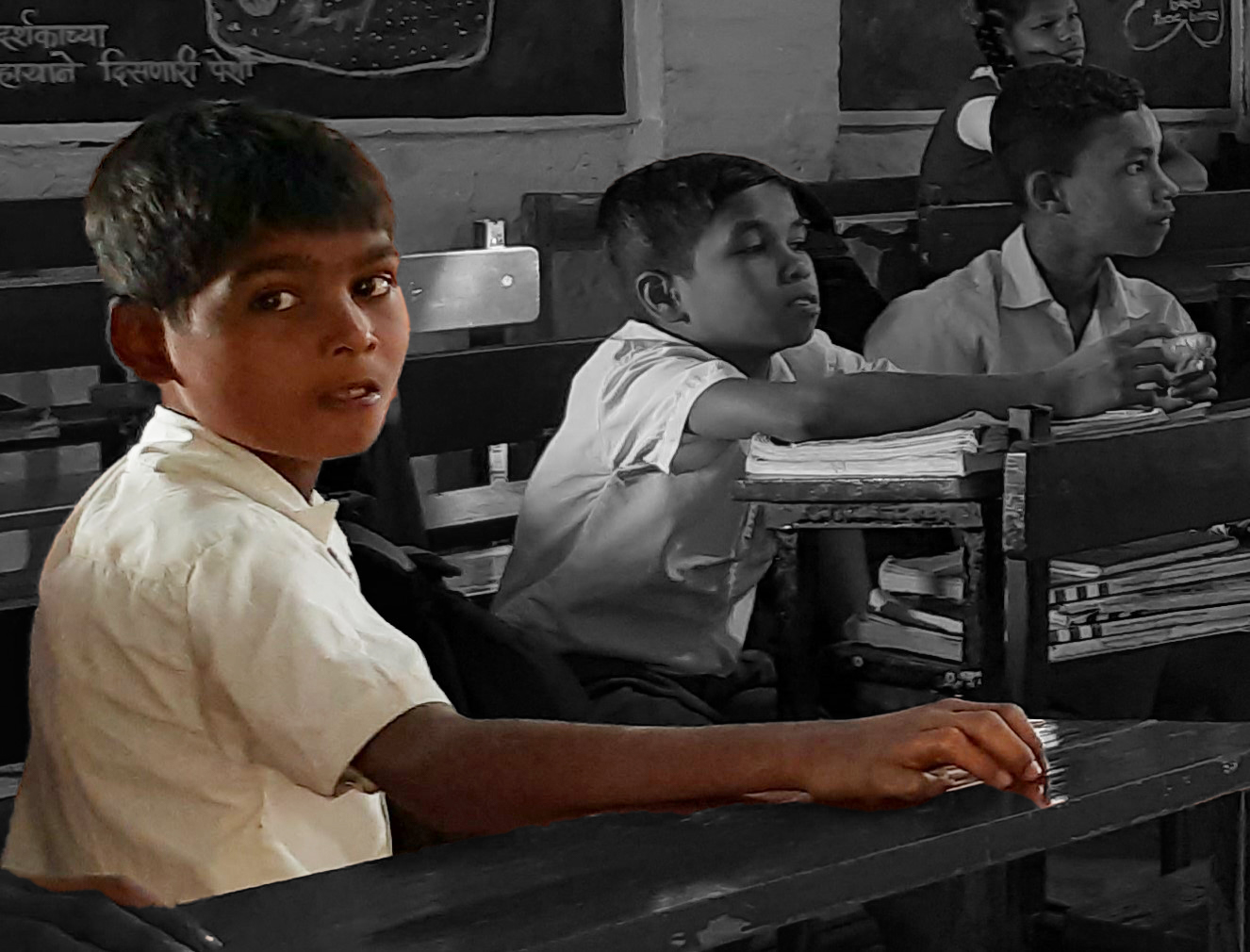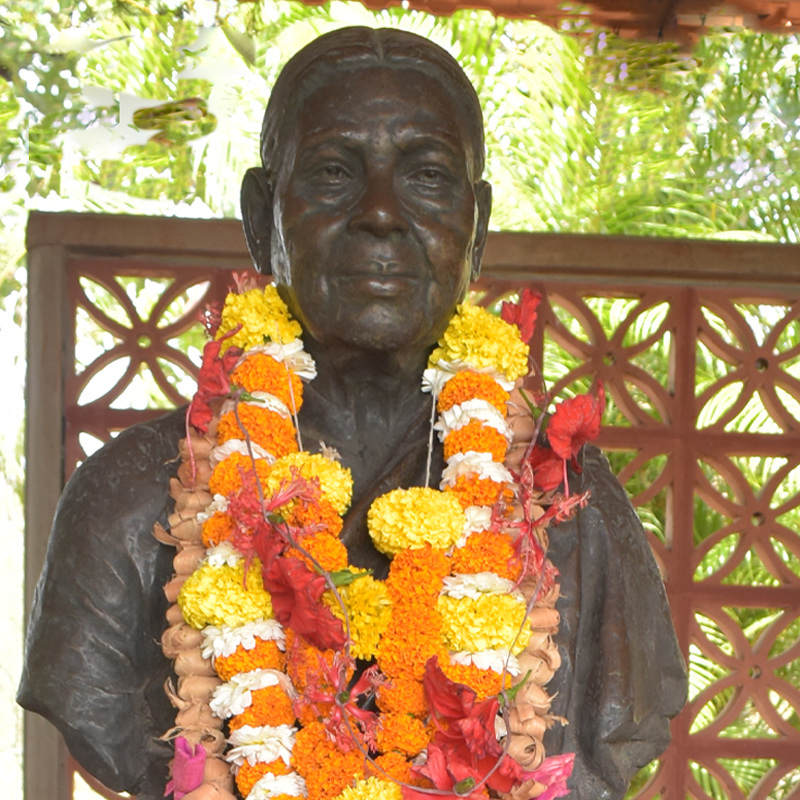About
Our Founders & Idols

Padma Bhushan Tarabai Modak
Tarabai Modak is rightly called as the “Montessori Mother”. She has made a significant contribution to preschool education in India. Her method brought in a silent revolution in the tribal community of Kosbad.
Padma Bhushan Tarabai Modak, a pioneer of preschool education in India was born in April 1892. She graduated from the University of Mumbai. In 1921, she became the first Indian principal of Barten female college of Education at Rajkot.
In 1923, she resigned from college and joined Shri Gijubhai Badheka who conducted a pre-primary school in Bhavnagar and propagated Montessori’s theories. In 1926, she helped him establish the Nutan Bal Shikshan Sangh for the spread and development of pre-primary school and teacher training center in Dadar in north Bombay.
She started the Gram Bal Shiksha Kendra at Bordi in 1945. In 1957 she shifted Gram Shiksha Kendra from Bordi to Kosbad. The Vikaswadi Project was launched and conducted at Kosbad under her constant guidance. She devoted the last 27 years of her life to this project which was the core of Gram Bal Shiksha Kendra’s activities. She was the General Secretary of Nutan Bal Shikshan Sangh for over 25 years and subsequently became its Vice president. She wrote a number of books for children and parents in Marathi and Gujarati. She also wrote books on child education in English. In 1962, the Government of India honoured her with the title of Padma Bhushan.
She passed away on 31 August 1973 at the age of 81.



Padma Shree Anutai Wagh
Anutai Wagh born on March 17, 1910. She was married at the age of 13 and became a child widow 6 months later and returned to her parents’ home. After passing the Vernacular Final (VII Std) examination, she took up Primary Teacher’s Training in Pune. In the final examination, she obtained a First Class.
Later in 1950, she graduated from the S.N.D.T. Women’s University. For many years she had to support and educate her younger brother and sister, but as the years went by, she longed to devote herself to social work in rural areas.
The turning point in Anutai’s life came in 1945 when she met Smt. Tarabai Modak in a training camp for women village workers organized by Kasturba Memorial Trust at Borivli (Bombay). Tarabai was planning to start an experimental pre-primary school in a rural area, Bordi, in Dahanu Taluka and asked Anutai if she would join the proposed school.
So began an educational partnership between the two women which was to last till Tarabai’s death in 1973.
The Gram Bal Shiksha Kendra started by both and then moved to Kosbad Hill in 1957 at Bordi in 1945, and moved to its present setting at Kosbad Hill in 1957, became a fountainhead of new ideas, exploratory ventures, experiments and innovations in education.
The new concepts of Balwadi, Anganwadi and Kuran Shala (Meadow School) were born out of her continuous thought and applied work in the tribal areas, and have been recognized as innovative and useful concepts in the history of child education in India.
Her efforts to produce educational aids out of the indigenous material available has certainly revolutionized the pre-school learning methods in the country, and has provided a model to the other developing countries also.
Under the auspices of Thane District Stree Shakti Jagruti Samiti, she started many activities for the welfare of women and children. Many Mahila gatherings were organized where importance of Family Welfare Programmes, Health and Hygiene, Child Care, Nutrition, Cottage Industries, Evil Effects of Superstitions, and Social Education were brought home to the tribal women.
In June 1980 she started a school for the Dumb and Deaf poor children.
She was the editor of the Marathi Magazine “Shikshan Patrika”, a very useful literature for children, teachers and parents since —-
In 1983 Anutai, started a totally new project called “Gram-Mangal”, at Dabhon, a typical tribal area, inhabited by Warli tribe. No other social work agency had ventured into this area so far. Anutai selected the place for trying out her experiment of a Free School – a school with no building and syllabus and the subjects taught would be those arising out of activities, that aim at overall development of the Warlis, including their economic status.

SUBSCRIBE NOW
Shikshan Patrika
Sign up to receive PDF version in your mailbox!
Your Subscription of Rs. 300/- goes towards continued efforts of sharing information to Parents and Teachers alike.

Transform a Life
With your help and so many others who have already made donations, we can provide access to education to the truly disadvantaged tribal children.

